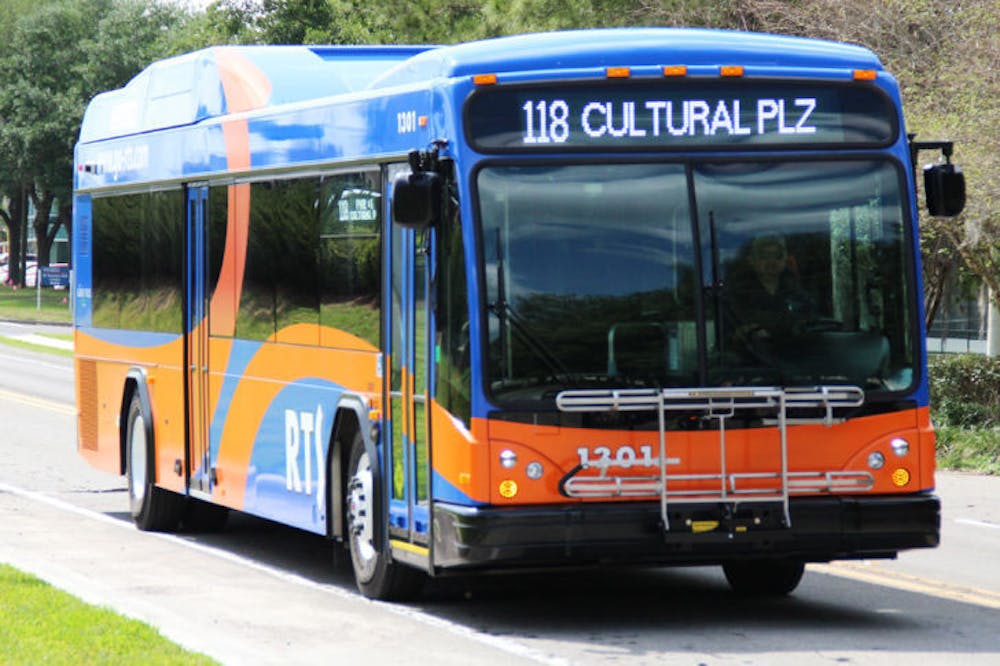Gainesville Regional Transit System has added three new hybrid buses to its on-campus routes.
Last week, riders of the 118 Park-and-Ride were met with two new orange-and-blue hybrid buses. The third bus was added to the 120 Fraternity Row route, bringing the number of hybrid-electric buses in Gainesville to five.
RTS got the new buses in February and started running them on routes April 1.
The two other hybrids, currently running on Route 46 from UF to downtown, were added to the fleet in July.
The hybrid-electric buses are the newest eco-friendly additions to a fleet that already uses biodiesel on its 116 buses, said RTS spokesman Chip Skinner.
“The hybrid battery power really helps us to increase fuel efficiency and emissions,” he said.
Skinner said these buses are similar to hybrid systems in passenger cars because they switch to an energy-saving idle mode until demand for the gas engine is increased.
“Much like a passenger hybrid car, you don’t see as much of a fuel savings at higher speeds because the electric engine isn’t kicking in as often,” Skinner said. “On campus, it’s more stop-and-go traffic, so we’re hoping to see a greater fuel savings in the long term by keeping them there.”
Both types of buses are 40 feet long and hold 72 passengers. However, they differ in miles per gallon and cost.
Skinner said the current biodiesel buses get about four to six miles per gallon.
The hybrid buses get about 15 percent to 20 percent better gas mileage than their non-hybrid counterparts.
The second difference is the price tag.
RTS’ regular biodiesel buses cost $400,000, and each hybrid bus costs $600,000.
The addition of these eco-friendly buses has piqued interest in students on the UF campus.
“I’ve ridden it several times and prefer it over the regular buses,” said 22-year-old UF advertising senior Qitan Huang. “It’s quieter and smoother, especially at the back of the bus where the exhaust is.”
UF mechanical engineer graduate student John Loeffler is concerned about the long-term cost of maintaining the hybrid system.
“They’re actually very inefficient,” he said. “Eventually, they’re going to have to replace the batteries, and they’re extremely expensive.”
Loeffler said hybrids may not be as eco-friendly as they appear.
“It also costs a lot of petroleum to actually manufacture one of these batteries,” he said.
RTS welcomed three new hybrid buses, including the 118 Park-and-Ride, to campus last week. The hybrid buses cost about $600,000 each, said RTS spokesman Chip Skinner.






